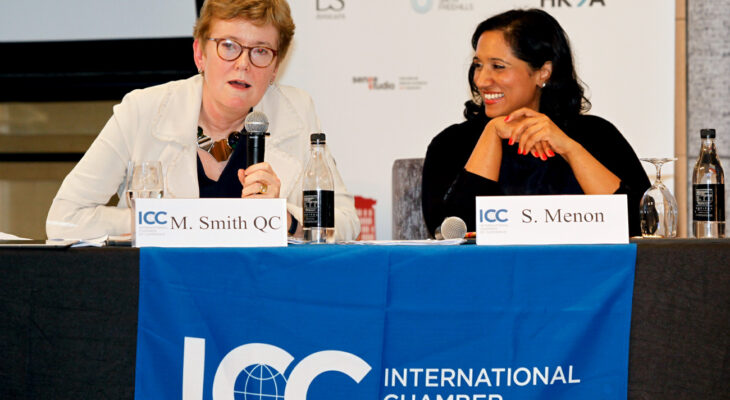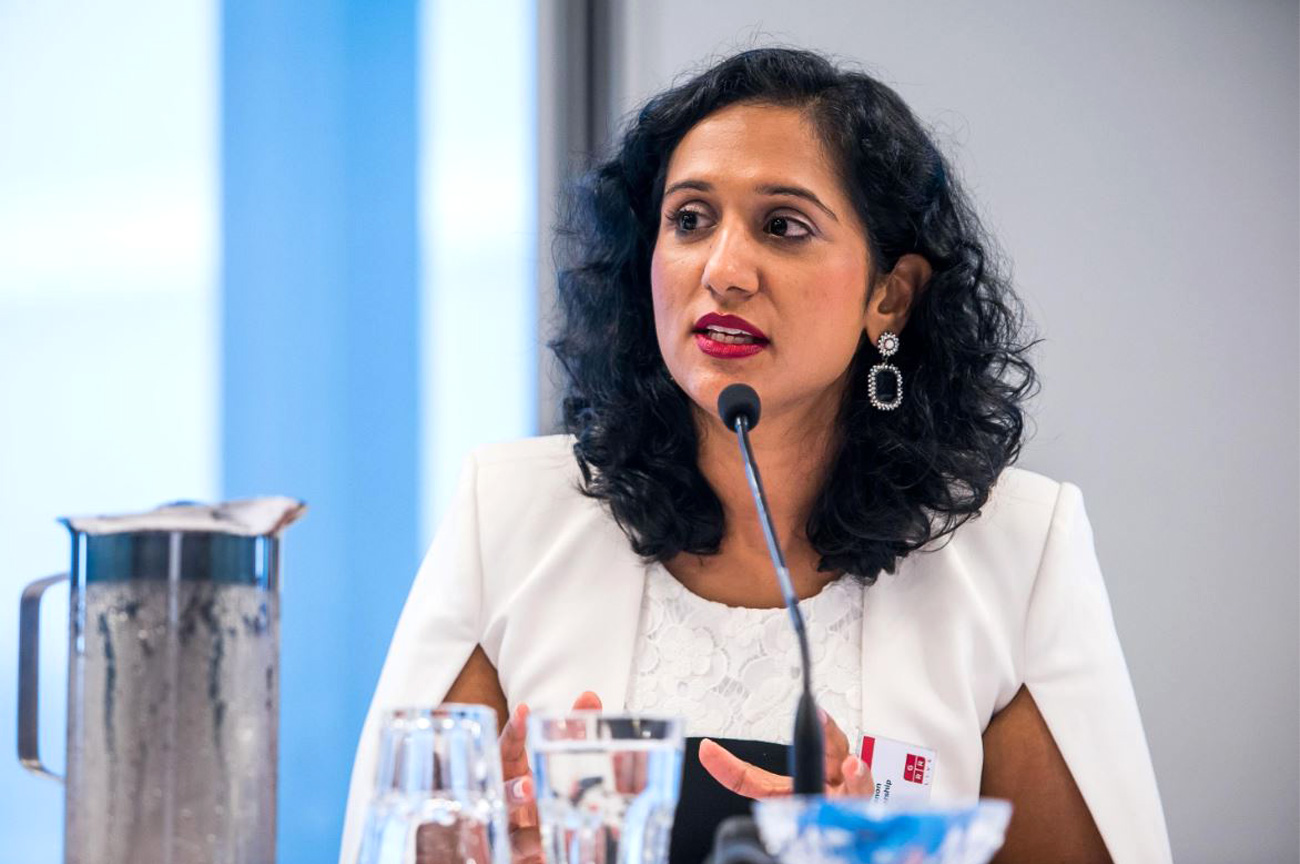
Why arbitration makes sense for businesses
Smitha Rajan Menon, Chair of ICC Singapore Arbitration Group, wants local businesses to understand the benefits of resolving disputes through arbitration
The Singapore Business Federation (SBF), in its capacity as ICC Singapore (see below), set up a new arbitration group earlier this year as part of its mission to promote the interests of the Singapore business community, and to raise the country’s profile as a hub for international arbitration and dispute resolution.
The ICC (International Chamber of Commerce) Singapore Arbitration Group aims to promote arbitration and other dispute resolution mechanisms as an efficient means of resolving commercial spats local businesses may get embroiled in whether here or with overseas parties, as well as enhance the level of expertise in the regional field. SBF is also the Singapore national committee of the ICC (ICC Singapore), the world’s largest business organisation, representing more than 45 million companies in over 100 countries.
The ICC Singapore Arbitration Group is chaired by Ms Smitha Rajan Menon, a partner at WongPartnership and one of two Singapore representatives on the ICC International Court of Arbitration. She will lead a core committee that will set the group’s agenda and drive its activities, as well as a Selection Committee of Arbitrators that will nominate arbitrators for ICC arbitration cases that are referred to ICC Singapore.
We speak to Ms Menon about the new group and its plans to help Singapore businesses.
What was the motivation for the ICC Singapore Arbitration Group to be set up?
Singapore has become a centre for international arbitration because it’s a neutral venue; it’s kind of like Switzerland when it comes to resolving disputes. That’s among the reasons international practitioners and institutions such as the ICC, the Permanent Court of Arbitration, the International Centre for Dispute Resolution and the World Intellectual Property Office set up offices here.
Because of the high level of arbitration activity here, it makes sense for the ICC to establish a body here to promote arbitration and other forms of ICC dispute resolution services for use by both local and foreign businesses in Singapore. It’s also a platform for the ICC to help contribute to the development of the expertise here.
Why should local businesses be aware of arbitration as a means to settle commercial disputes?
When we think back to the old days, when people had a dispute, you had a village elder come in to resolve it. It’s kind of a similar concept here. For parties having a dispute and who don’t want to go to court, they can voluntarily go for arbitration, where a skilled third party adjudicates the issue and the process can be ad hoc or administered by an institution. So ICC Singapore is one institution that does that.
The parties can agree upfront when they go into business together that if they fall out, this is how they will resolve their disputes. This arbitration clause can be inserted into their business contracts. So arbitration is another alternative for resolving disputes in place of a court process.

What are the advantages of arbitration as a means of resolving disputes?
Arbitration is usually a confidential process and takes into account the fact that business today is increasingly global, and not confined to one country. The problem we have with courts is that their decisions are not always enforceable in other countries. If I am from Africa, a Singapore court order may be totally irrelevant to me. But enforcing a decision by an arbitrator overseas is much easier because the New York Convention on the Recognition and Enforcement of Foreign Arbitral Awards has been signed by almost 160 countries, including Singapore. All the countries that signed have basically agreed that arbitration awards will be enforceable in their countries.
This iswhy arbitration has so much traction because people from different countries having a dispute would rather go to arbitration and have an outcome they can enforce wherever assets are, as opposed to trust their opponent’s national court which they may be unfamiliar with and where they may fear the counter party has a “home advantage”.
What will be the key activities of the ICC Singapore Arbitration Group?
The first objective is to represent the Singapore business community in ICC’s global initiatives and activities. At the end of the day, the lawyers and arbitral institutions are service providers. Our real customers are the businesses. We want to get the community comfortable with the idea of what happens when things don’t go according to plan and the benefits of going for mediation or arbitration or a range of other options to resolve problems that may arise in a business relationship. Part of that includes promoting the services the ICC offers through conferences, seminars and other events.
We also want to further develop the expertise of the arbitration community here and in the region through training, sharing of knowledge and also networking. If you’re a junior arbitration practitioner, you will not have much exposure to the community apart from your colleagues or your opponents in arbitration. So it’s beneficial to have a platform to come together and learn, share thoughts and meet more experienced practitioners. And when we say community, it’s not just lawyers, but also in-house counsels, and even academics, because arbitration has spawned its own body of law.
How will the group promote the interests of the Singapore business community?
One of the things that the arbitration community may have forgotten is that we are providing a service. I find it a little disappointing that when you attend arbitration conferences, it is often mostly made up of service providers like arbitrators and arbitration lawyers. To me, this can be a bit of an echo chamber. I think that more effort should be placed on the actual users of our services, namely, the businesses. For SMEs out there, they need to know that there are non-expensive, confidential and quick options to resolving disputes and going to court is not the only way. And most importantly, they need to know that there’s a way to resolve the disputes without killing the business relationship. I feel that that messaging has not really come across enough. Our goal is to demystify these alternative processes for businesses.
SBF and its role in the ICC
The International Chamber of Commerce (ICC) serves as the voice of the business community on key international issues of relevance businesses. It aims to promote international trade, responsible business conduct and a global approach to regulation through advocacy and standard setting activities, as well as market-leading dispute resolution services.
ICC’s role is consistent with SBF’s mandate to champion the interests and needs of the Singapore business community on cross-border trade and investment matters on the global stage. As such, SBF, as the apex business chamber, serves as the ICC National Committee in Singapore, or ICC Singapore.
As the ICC Singapore, SBF is able to nominate members to participate in ICC commissions and the ICC International Court of Arbitration, as well as distribute of ICC publications, services, products and training programmes in Singapore.
SBF is also a member of the World Chambers Federation, a forum established by the ICC whose membership consists of over 12,000 local, regional, national, bilateral and transnational chambers of commerce, as well as public-law and private-law chambers.
Interested in finding out more about the ICC Singapore Arbitration Group? Join us at the inaugural ICC Singapore Arbitration Group Inaugural Townhall Meeting on 17 September 2019. Sign up here: http://bit.ly/ICCSGArbitration or email our team at [email protected] (Nisa) or [email protected] (Jason) if you have any queries.


















